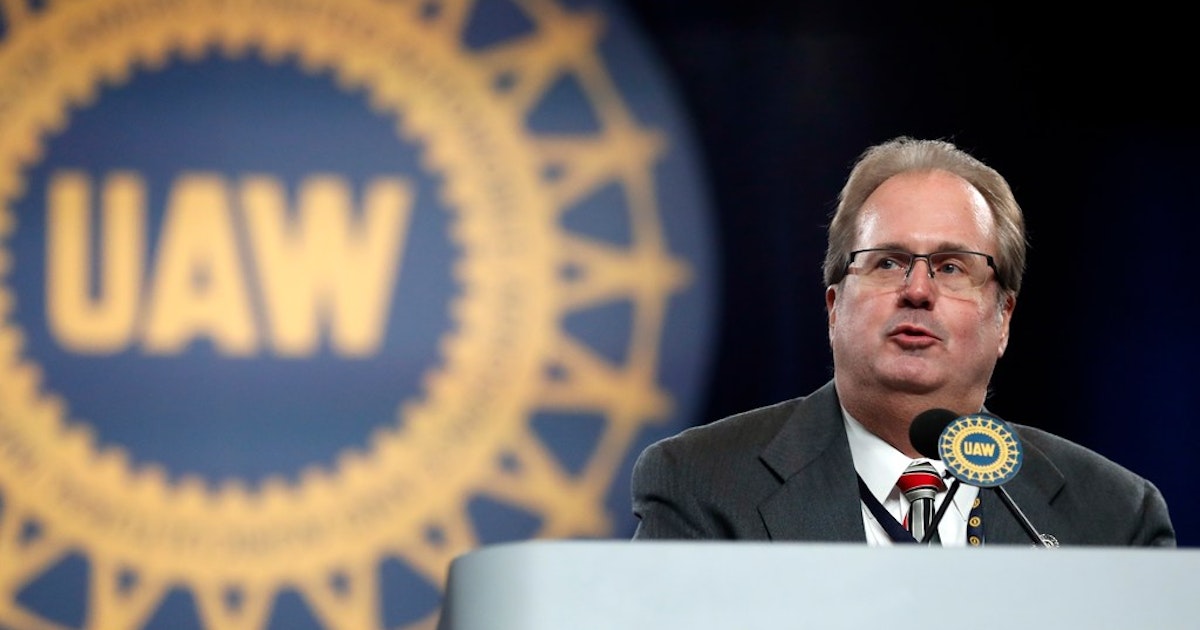Slowing sales, rising costs set stage for start of UAW contract talks with Detroit 3 - 3 minutes read
 Slowing sales, rising costs set stage for start of UAW contract talks with Detroit 3
Slowing sales, rising costs set stage for start of UAW contract talks with Detroit 3In recent years, Detroit automakers have been at relative peace with the United Auto Workers union because times have been good and profit-sharing checks have been fat.
That could change this week as talks open on new four-year contracts with the union representing 142,000 workers across the nation.
In Arlington, the UAW represents nearly 4,000 workers at the General Motors assembly plant where Chevrolet Tahoes, Suburbans, GMC Yukon XLs and Cadillac Escalades are made. The plant produces about 1,200 vehicles a day.
Auto sales are starting to slow as well as profits, health care costs are rising and a labor cost gap has widened with workers at foreign-owned assembly plants in the South.
But Ford, General Motors and Fiat Chrysler are still making good money, and the union will want a bigger piece. As negotiations loom, General Motors is expected to announce its new line of SUVs to be produced at the Arlington plant.
Plus, General Motors wants to close four U.S. factories, which the union has promised to fight.
Here are some key things to know as bargaining begins Monday with a ceremonial handshake at Ford:
Yes. At a bargaining convention in March, President Gary Jones told delegates that the union is raising strike pay and said the union would walk out if necessary. The UAW also has been adamantly opposed to GM's plans to close the factories, including large assembly plants in the Detroit area and in Lordstown, Ohio. A strike is unlikely before the contracts expire at 11:59 p.m. Sept. 14.
It depends on how long it lasts and how widespread it is, but a targeted company would quickly run out of parts and couldn't build vehicles. Consumers would then see fewer cars and trucks on dealer lots, and they wouldn't be able to special order vehicles. Companies and workers would lose money. In previous contract talks, there was little mention of strikes. The last time UAW workers walked out of auto plants was in 2007 in a short strike against GM.
Source: Dallasnews.com
Powered by NewsAPI.org
Keywords:
United Automobile Workers • Detroit • Detroit • United Automobile Workers • Profit sharing • This Week (ABC TV series) • Contract • Trade union • Workforce • Arlington County, Virginia • United Automobile Workers • General Motors • Chevrolet • Chevrolet Suburban • Chevrolet Tahoe • Cadillac • Escalade • Car • Car • Assembly line • Ford Motor Company • General Motors • Loom • General Motors • Sport utility vehicle • General Motors • Ford Motor Company • Collective bargaining • President of the United States • Gary Jones (actor) • Trade union • Strike pay • Trade union • Walkout • United Automobile Workers • General Motors • Factory • Freedom of assembly • Factory • Detroit • Lordstown, Ohio • Strike action • Company • Vehicle • Consumer • Car • Truck • Car • Company • Workforce • Money • Contract • Strike action • United Automobile Workers • Workforce • Walkout • Car • Factory • Strike action • General Motors •